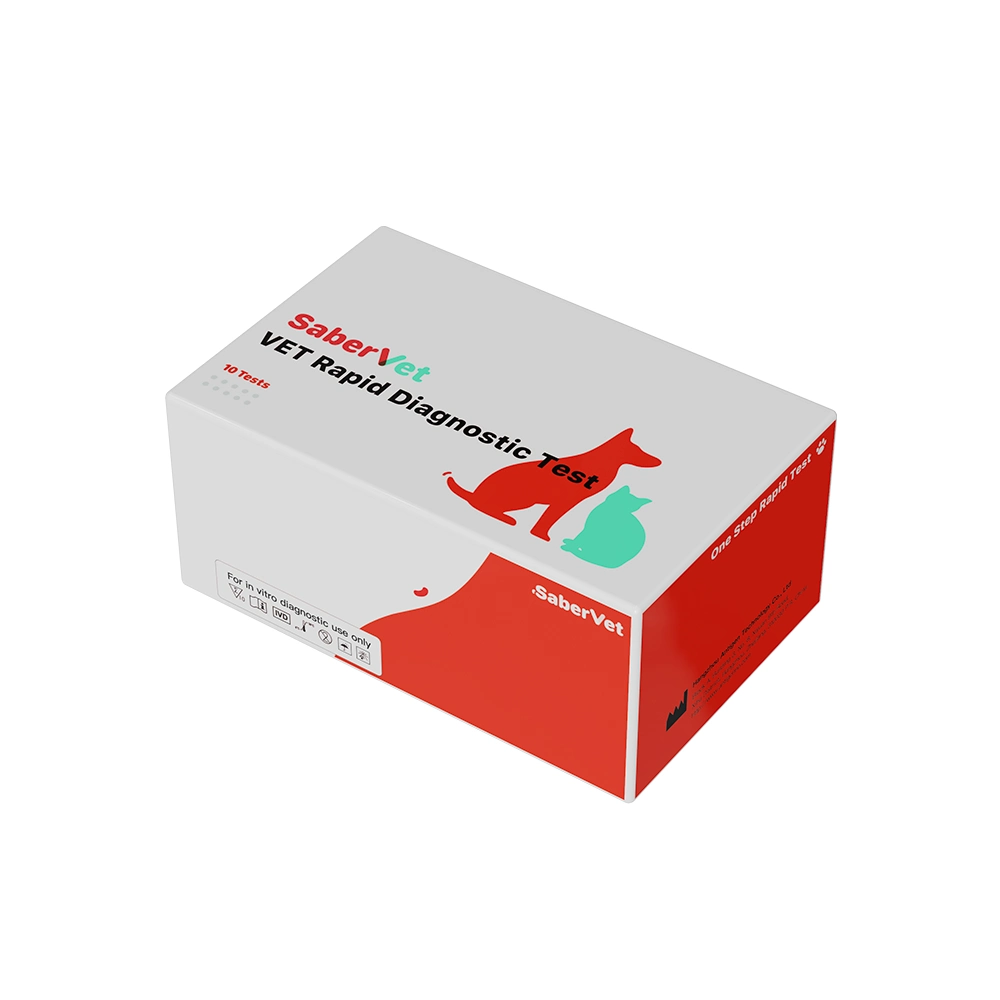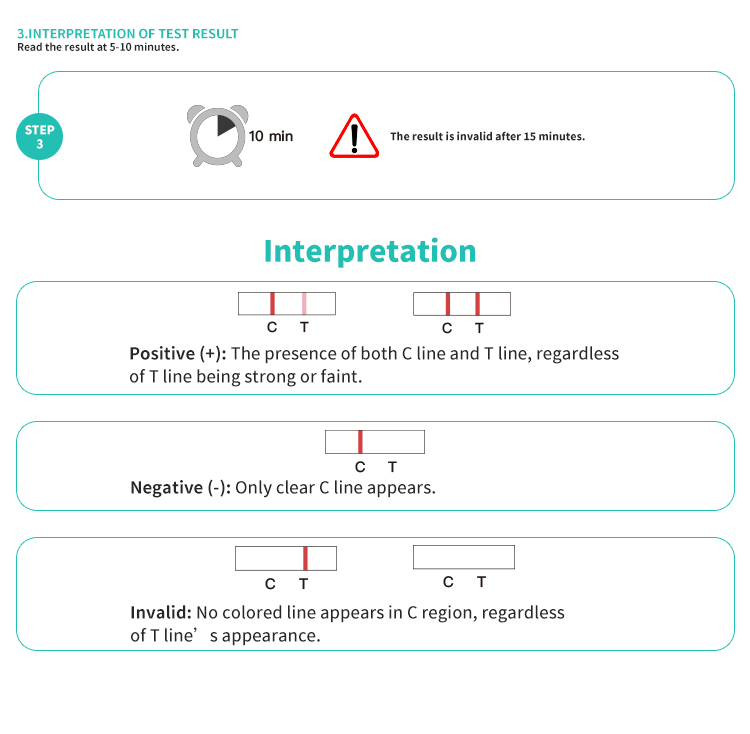Intended Use
Canine Parvovirus Antigen Rapid Test is a lateral flflow immunoassay intended for the qualitative detection of specifific antigen from canine Parvovirus (CPV) in fresh feces or rectal swab sample. The test is useful for simultaneous determination of CPV infection.
Contents
| Component | 10T/Box |
| Test device | 10 piece |
| Swab | 10 piece |
| Buffer | 10 piece |
Specifications
| Product name | Canine Parvovirus Antigen Rapid Test |
| Brand Name | Sabervet |
| Model Number | 1091032210 |
| Specimen | Feces |
| Application | Vet Health Diagnosis |
| Sensitivity | 99.80% |
| Specificity | 97.69% |
| Certificate | GMP & ISO9001 & CE |
| Assay Time | 10 Minutes |
| OEM&ODM | Available |
| Shelf Life | 2 Years |
Operation
Results
Pathology Introduction
Disease caused by Canine Parvovirus (CPV) is called Canine Parvovirus Disease (CPD) and is a serious infectious disease of dogs that usually affects young puppies, especially unvaccinated puppies. The virus is spread primarily through contact with infected feces, vomit, saliva, or infected environmental surfaces.
Symptoms of canine parvovirus disease: incubation period is 7~14d; most present with enteritis syndrome, a few present with myocarditis syndrome.
Hemorrhagic enteritis type
Enteritis dogs manifested after 1~2d of anorexia, soft stools, intermittent or elevated body temperature, rapidly developed into frequent vomiting and violent diarrhea, discharged foul-smelling soy sauce-like or tomato juice-like blood stools, and rapidly appeared in the eyeballs sunken, skin loss of elasticity and other symptoms of dehydration, soon presented with ears and nose cold, peripheral circulation disorders, high mental depression and other state of shock. Blood examination shows increased erythrocyte pressure volume and decreased leukocytes. Often falls into coma and dies within 3 to 4 days.
Acute myocarditis type
Diseased dogs with myocarditis syndrome are mostly found in the early stage of the epidemic, or 4~6 weeks old puppies lacking maternal antibodies.
Heart failure often occurs suddenly without aura, or after recovery from enterocolitis, sudden congestive heart failure. The presentation is characterized by groaning, dry cough, cyanosis of the mucous membranes, and extreme respiratory distress. There is a heart murmur and an accelerated heartbeat, and death often occurs within a few hours.
Means of detection of parvo test
The main diagnostic parvovirus rapid test for canine parvovirus disease are:
Hemagglutination and hemagglutination inhibition tests
Electron microscopy and immunoelectron microscopy observation
Virus isolation and identification
Enzyme-linked immunosorbent assay (ELISA)
Rapid diagnostic test kits/strips, Antigenne has a USDA approved rapid parvo test at home for Canine.
Therapeutic Programs
The primary goals of treating Canine Parvovirus (CPV) infections are to reduce symptoms, control complications, maintain fluid balance, provide supportive care, and promote your dog’s recovery as much as possible. The following are common methods of treating CPV infections:
Fluid Replacement: dehydration is one of the common complications of CPV infection, so fluid replacement is key to treatment. Veterinarians will often give fluids to the affected dog through an intravenous infusion to help restore fluid balance.
Antibiotic Treatment: CPV infections can increase the risk of secondary infections by compromising a dog’s immune system. Therefore, antibiotics may be used to prevent or treat bacterial infections.
Antiemetics: Since vomiting is one of the common symptoms of CPV infection, antiemetic medications may be used to control vomiting and help your dog better receive treatment and recover.
Nutritional support: Dogs infected with CPV usually lose their appetite or even refuse to eat, so nutritional support is very important. Your veterinarian may recommend special high-energy, easily digestible foods or nutritional support through intravenous nutrition.
Antiviral treatment: some medications may be used to try to reduce viral replication or attenuate its pathological effects, but there is currently no clear evidence to support specific antiviral therapy for CPV infection.
Other supportive treatments: This may include the use of pain medications to reduce pain, anti-inflammatory medications to reduce inflammation, and maintaining a clean and comfortable environment to promote recovery.
The SaberVet Pet Rapid parvo test kit, the pioneer in animal diagnostics. Our innovative technology and rapid diagnostic products create accurate and timely health protection for your pet’s health.















